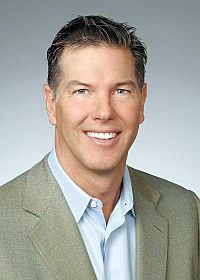
Charles Wuischpard
Vice President, Data Center Group; General Manager, Workstations and Technical Computing, Intel
The recent announcement of Charles Wuischpard as the new VP of Intel’s Data Center Group and GM of Workstations and Technical Computing at Intel took a lot of industry observers by surprise. Wuischpard has been a driving force behind Penguin Computing over the last seven years and the President and CEO of the company. With a veteran of the HPC industry, Wuischpard has a lot of experience to draw from as he leads his respective Intel groups in new directions. We caught up with Wuischpard to see what’s on his mind as he starts his new role.
HPCwire: Charles, congratulations on the new position. Obviously you’ve become synonymous with Penguin Computing, having been the President and CEO of the company for the last 7 years (since 2007). Can you talk about your decision to move into this new position with Intel, what your new responsibilities will be, and what you expect to accomplish in your tenure there?
Charles Wuischpard: I was quite happy at Penguin Computing. We were coming off another record year and not looking for a change, but when Intel called, I had to listen. What drew me to the opportunity was the chance to be involved in, and participate in the future of HPC at the highest levels from the global race to Exascale computing to the expansion and adoption of new HPC computing models like cloud. The assets at Intel to help make this happen are impressive.
My specific responsibilities are to manage the P&L for the Workstation and High Performance Computing business. As the industry and technologies continue to evolve, I hope to bring cutting edge solutions to market that in the end advances scientific discovery. I’m like every other HPC aficionado. I love new technology and making it work. And I feel inspired by the scientific discoveries that are made possible in so many different disciplines through the use of high performance computing, and Intel is a great enabler of this.
HPCwire: In your role at Penguin Computing, you’ve seen the landscape change in some significant ways over the years. Can you talk about the changes you’ve seen, and some of the insights you’ll be bringing with you into this new position?
Charles Wuischpard: There are two big changes I’ve seen. The first is that the world of HPC is getting more complex and requires greater levels of investment and expertise whether you are a core technology provider or a system builder/integrator. This is starting to separate those that are really invested in HPC from those that treat it as a side business.
The second, obviously, is cloud computing for HPC. It’s been a little slower coming than general purpose cloud computing but it is coming to enterprises and projects of all sizes. I know customers that are planning on increasing their use of on demand HPC by an order of magnitude in 2014. These aren’t just small users but major enterprises, too. I’m hopeful that my prior experience leading a system builder/OEM and cloud service provider will only help Intel add to their capabilities. Again, it’s about bringing the most robust HPC solutions to the widest possible base of users.
HPCwire: As you look down the road at 2014 and beyond, what trends do you see developing that are worth taking note of?
Charles Wuischpard: I see many trends but two areas are worth noting. The first is the benefit that comes from higher levels of integration between the major components of a system: processor, fabric, memory, etc. Of course, there are performance and density benefits but another set is around quality and reliability. There are literally millions of potential technology combinations available when building a cluster or supercomputer and on paper, it’s nice to be able to provide that level of customization. But as a former system builder, this creates huge support and service headaches and additional expense in testing and validation. (The ultimate in simplicity, by the way, is a cloud based system that just works, no headaches.)
But for the traditional market that owns and operates their own machines, I believe there is an opportunity to provide a better experience and value proposition through simplification. The other big one has been covered many times before and is well known, but it is the parallelization of the software codes that have been around for so many years. That’s what will get the order of magnitude gains in performance on today’s (and tomorrows) leading architectures.
HPCwire: On a personal note, can you talk about your personal life? Your family, background, any hobbies?
Charles Wuischpard: Well, Penguin Computing was a hard task master and Intel is a business at an entirely different scale so weekdays are pretty busy! That said, I have two awesome children in grade school and as an older parent, I don’t want to miss watching them grow up. So, weekends are really full of family life but I’m also an avid outdoors person and living in northern California gives us year-round access to great passions of mine; in particular, mountain biking, downhill and backcountry skiing, fly fishing, and swimming.
HPCwire: One last question – is there anything about yourself that you can share that you think your colleagues would be surprised to learn?
Charles Wuischpard: Well, everyone knows that HPC is a small community but I live just down the road from my now Intel colleague, Brent Gorda, the former founder of Whamcloud, and before I joined Intel, we’d try to schedule business updates while cycling. I hope that we can continue that tradition! We all need some fresh air to be our most creative.

































